El-Rufai Calls For Continuous Prayers for Asiwaju-Shettima
You Must Continue Your Activism Even In Retirement- El-Rufai Tells Akintola
El-Rufai, Banire, Pantami, Oluwo of Iwo, Honoured
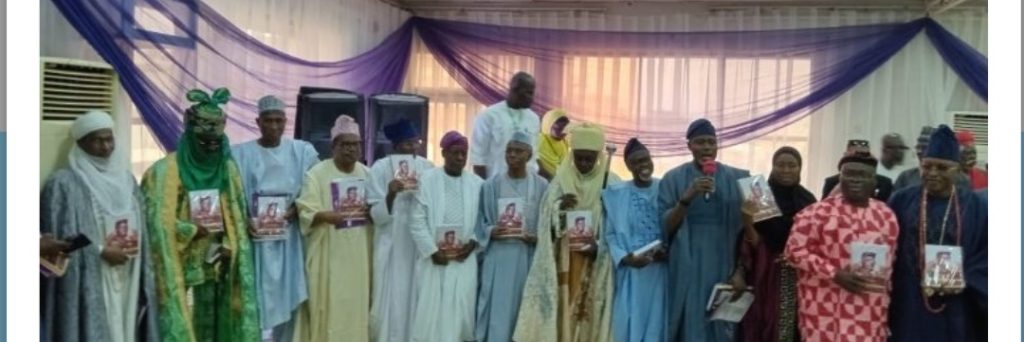
.Cross section of some of the dignitaries at the event.
As Prof. Isiaq Lakin Akintola retired after 39 years of active service at the Lagos State University, LASU, with the unveiling of his 429-page autobiography recently, the book has been described as A MUST-READ FOR ALL STUDENTS OF KNOWLEDGE.
This is the advice of the Vice-Chancellor, Ahman Patigi University, Prof. Mahfouz Adedimeji, when he was reviewing the book.
According to him, it is a book every conscious Muslims must read in their early years for proper modelling and orientation.
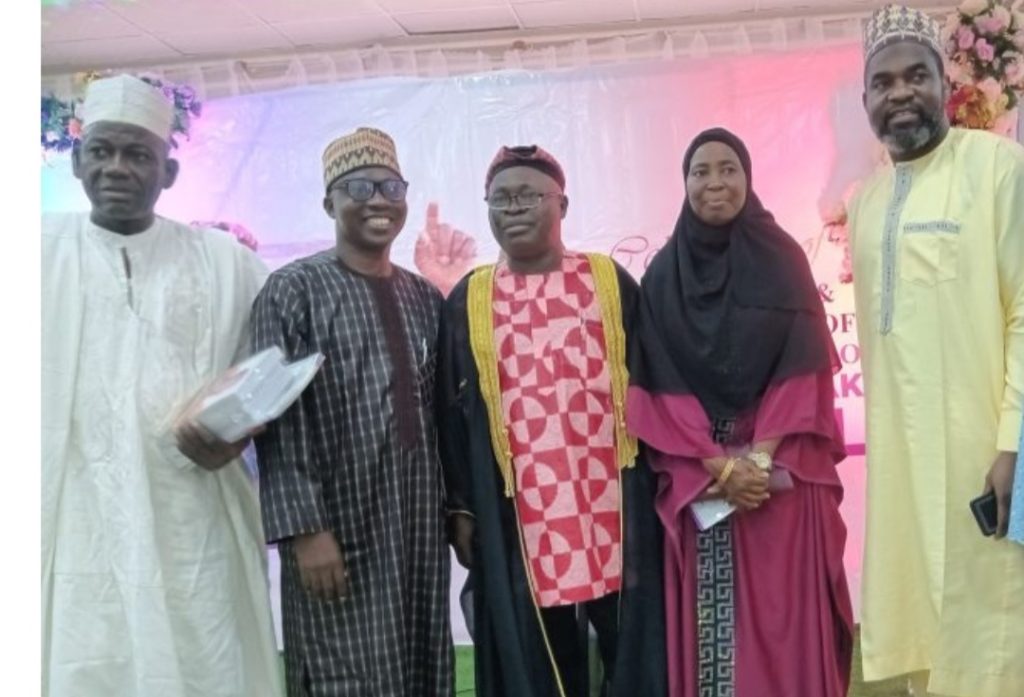
L-R: Alhaji Ali-Agan, Prince Bashir Adefaka, CEO/Editor-in-Chief, Defender Media Limited, Prof. Ishaq Lakin Akintola, Executive Director MURIC, Alhaja Aminat Akintola, his wife and Prof. Mahfouz Adedimeji, Book Reviewer and Vice Chancellor, Ahman Patigi University, Patigi, Kwara State; during the Book Launch of Prof. Akintola in Lagos recently.
The respected Professor of Islamic Eschatology and accomplished academic was the cynosure of all eyes at the LTV COMBO Hall on Sunday.
The founder of the Muslim Rights Concern, MURIC, honoured four outstanding Nigerian Muslim personalities honoured at his book launch for their contributions to the development of Islam.
Mallam Nasir El-Rufai was given Icon of Arewa Integrity award. Oluwo of Iwo, Oba AbdulRasheed Adewale got the Defender of the faithful award.
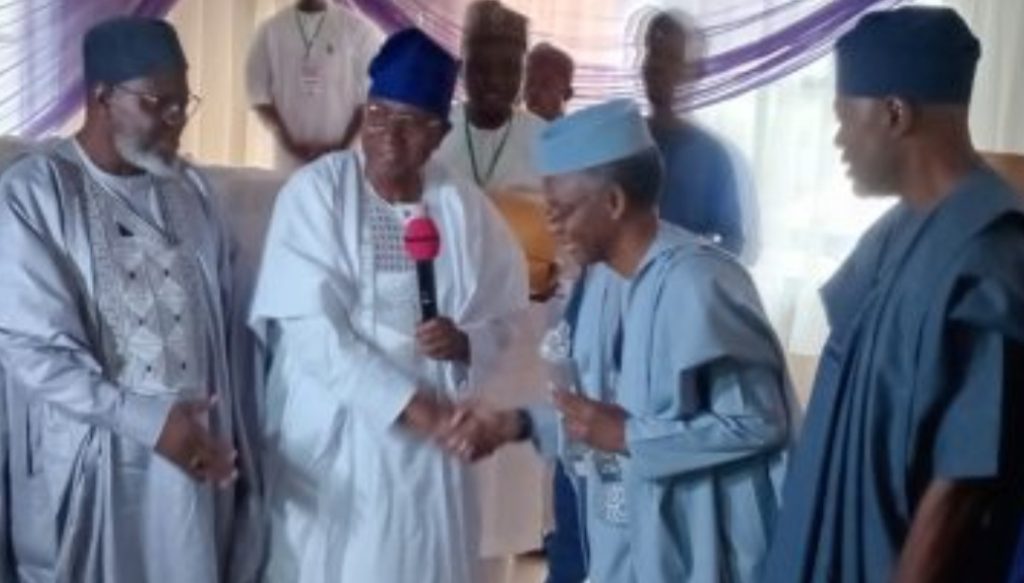
MUSWEN’s President, Alhaji AbdulRasaq Oladejo presenting award to Mallam Nasir El-Rufai with them are Prof. Salisu Shehu and Mallam Yusuf Olaolu Ali, SAN.
Dr. Muiz Banire was given the Hero of Badr award while Prof. Isa Ali Pantami got the Pride of Islamic Scholars award.
The chairman of the occasion, Mallam Yusuf Olaolu Ali, SAN, described Prof. Akintola as a pride of Islam and he urged Nigerians to stopped seeing all issues from tribal and religious sentiments but to always do what’s right.
In his keynote speech titled; North and South Interdependence and Integration in National Politics: Thoughts on Political Stability, Nation-Building, and Progressive Transformation, former governor of Kaduna State, Mallam Nasir El-Rufai, went down memory lane to remind people how religion and tribe had not really mattered in those days.
“Increased literacy, religious and ethnic awareness, improved communication technologies and enhanced political sophistication have sadly led to more intolerance, ethno-religious division using manufactured falsehood, and overall poorer political, economic and social governance. How did we as a nation get to this point? How do we reject this toxic mix that has not served our nation well?
“There was a time when religion and ethnicity were rightly seen as private matters that were only incidental to politics and governance, and not as the sole definers of a person, and certainly not negotiating tools in serious national affairs – and this applied everywhere in Nigeria until the mid-1990s to date, sadly.”
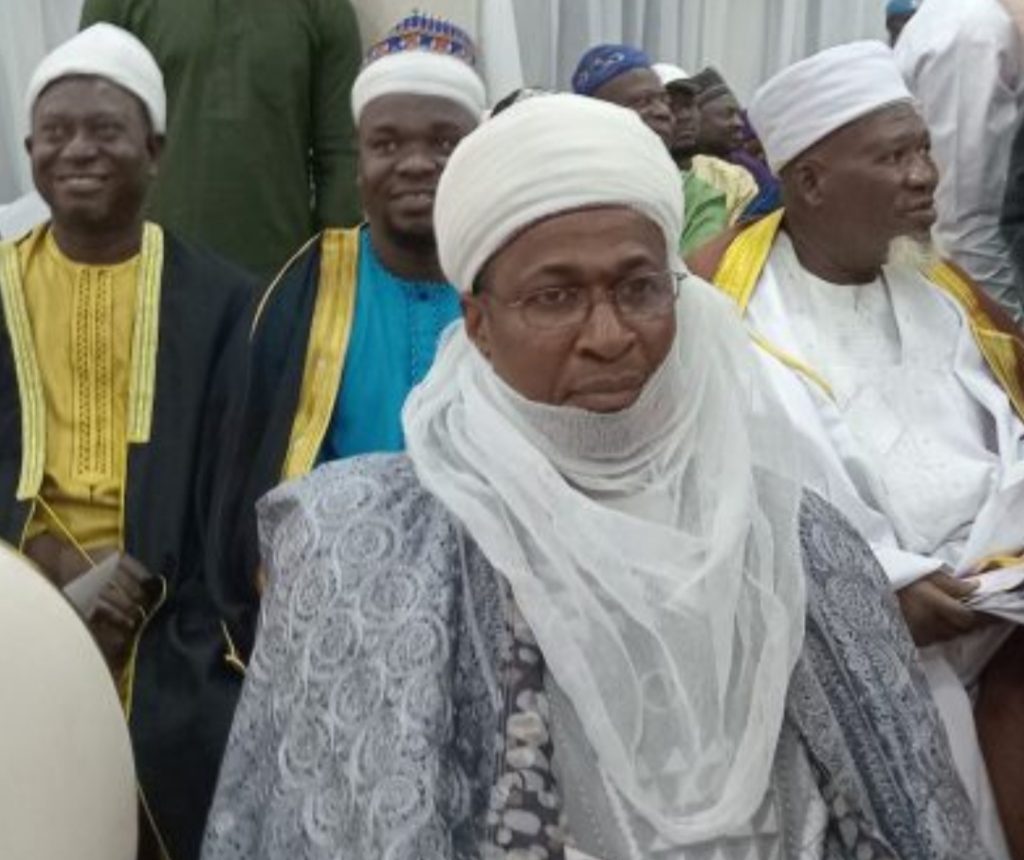
“Did their different faiths stop either Alhaji Jakande or Chief Ige from implementing their party’s manifesto of free education in their states, allowing the children of the poor of whatever ethnic or religious identity to enhance their prospects for social mobility?
“Nigerians were determined to end military rule, and the endless transition of the time, and didn’t buy into the manufactured falsehood of an Islamisation agenda by Abiola, and they rejected the so-called ‘balanced’ ticket!”
“Dr. Hadiza Balarabe and I ran a government dedicated to the equality of persons, resolutely pursuing the policy of common citizenship. Despite sharing the same faith, we were bound by the injunctions of our Islamic faith, our oaths of office and our societal values to exercise our duties with fairness and justice.
Electing persons of the same faith is neither a threat to the rights of others nor a blow to inclusion: it may only have highlighted other identities that tend to be excluded, as we did in Kaduna State.
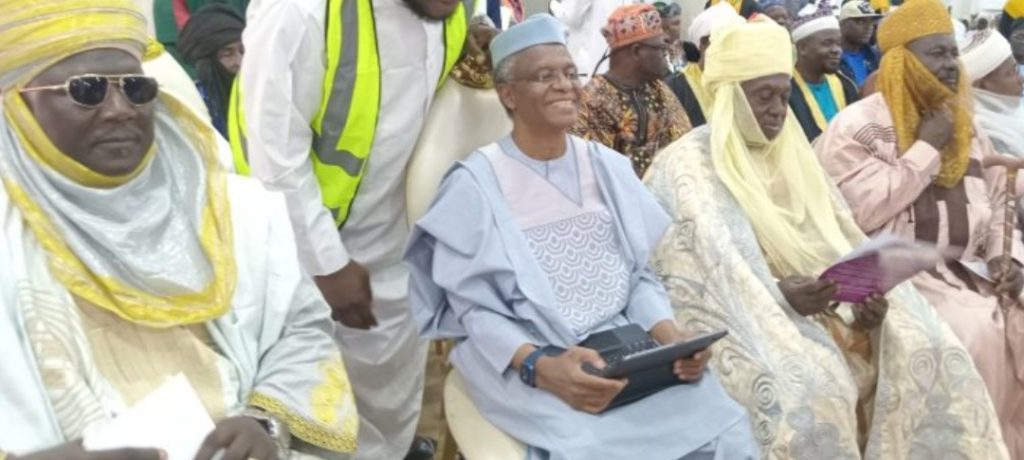
If we want our citizens to invest in common causes, to work in mutual endeavours for progress, to build a society of merit, hard work and fairness, we must deemphasise religion and region, and their vicious twin ethnicity, in making political decisions and choices.
Let us build a society centred around citizens, who can live and pursue livelihoods everywhere, with constitutional rights that apply to all.” “Leadership based on Islamic (and indeed, even Christian) principles is fair and equitable – and prescribes that a leader must be fair and just to everyone – whether Muslim (or Christian) or not.”
Mallam El-Rufai elucidated his points with references to both Christian and Islamic religious sources. He quoted Proverbs 14:34 that stated that “Righteousness exalts a nation, but sin is a reproach to any people.”
And another Biblical prescription that “thou shalt love thy neighbor as thyself” from the Book of Leviticus 19:18. “Both prescriptions in the Bible focus on the ethics of reciprocity known as the Golden Rule or the Great Commandment. Is the Christian leadership in Nigeria consistent in preaching these exhortations to guide any faithful in politics and governance?
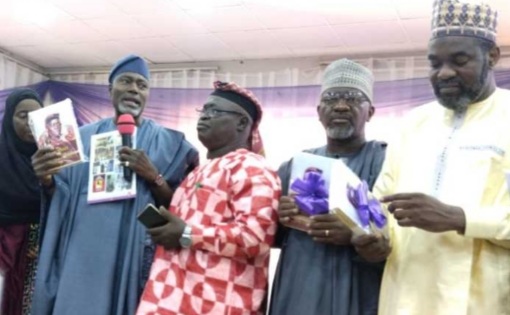
Were these two principles the basis of the Christianization of Peter Obi’s campaign in churches during the 2023 elections? Certainly not!”
“In Kaduna State, and indeed in all my public service assignments, I am proud to be guided always by the prescriptions of my Islamic faith regarding the discharge of the responsibilities of leadership.
From the administration of the BPE to the FCT and the governance of Kaduna State, I am constantly reminded of the writings of the founder of the Sokoto Caliphate closer to home in his Bayan Wujub Al-Hijra that “a society can thrive and prosper submerged in unbelief….but shall go nowhere under the yoke of injustice even in the light of [Islamic] belief.”
“As Muslims, we are also reminded of the words of our Prophet Muhammad (PBUH) that “None of you will (be a true Muslim) until you love for your brother what you love for yourself.”
“Even in the pre-Jihad era of the latter-day Sokoto Caliphate, the Hausa Kings of Kano, Zazzau and Katsina, among others, were deeply influenced by the works of Ibn Taymiyyah, may Allah have mercy on him, who wrote then that:
“It is said that Allah allows the just state to remain even if it is led by unbelievers, but Allah will not allow the oppressive state to remain even if it is led by Muslims.
And it is said that the world will endure with justice and unbelief, but it will not endure with oppression and Islam.” How can any Muslim placed in a leadership position be unjust to any person if complying with the foregoing principles?”
Looking at the Christian and Islamic principles of public leadership, the similarities are clear and unequivocal.”
“Under the inclusive leadership of Sir Ahmadu Bello, the Sardauna of Sokoto and the only Premier of the defunct Northern Region, these became embedded in the code of governance in Northern Nigeria between 1952 and 1966.
It was therefore not surprising that Northerners of those days – Muslims and Christians alike – were brought up as part and parcel of this cultural and religious milieu up until the mid-1990s. Some of us remain guided by these principles till today, while sadly, many more have abandoned what essentially defined what it means to be a Northerner – fairness, truthfulness, honesty and keeping one’s words – for generations.”
“The point of my remarks in Kaduna and indeed today is that truly religious-guided leadership is fair to all – whether Christian or Muslim or a combination thereof.
“We have shown it in Kaduna where no non-Muslim can point to any treatment different from a Muslim residing in our state in terms of implementing policies, programmes and projects.
No non-Muslim can point to discrimination in opportunities or political appointments, employment, access to education, healthcare, scholarships or other social services.”
“The Muslim majority will always have its way in democratic contests, while the Christian minority will have its say, and have its rights protected as Kaduna State has shown. I have no fears that the same will happen in Nigeria today and always if we are serious about complying with the leadership prescriptions of our two main monotheistic religions.”
“I am therefore pleased to observe that the much-derided and opposed Tinubu-Shettima APC ticket not only won the presidential elections but has shown within weeks that the Muslim-Muslim presidency is capable of being fair to every one – Muslim and non-Muslim alike.
President Asiwaju’s victory has not only silenced the once-loud religious bigots, but his few weeks of governance, policy decisions and the diversity of political appointments has confirmed that he will not be unfair to any ethnic, religious or regional identity.”
President Tinubu has shown so far that Nigerians should elect tried and tested problem-solvers of whatever religious, ethnic and regional description for righteousness to pervade our nation.
“Religion is not to bewilder man but to guide him. It is not to debase him but to elevate his moral nature. It is not to deprive him of anything useful, or to burden him, or to oppress his qualities, but to open for him inexhaustible treasures of sound thinking and right action.
It is not to confine him to narrow limits, but to launch him into wide horizons of truth and goodness. In short, true religion is to acquaint man with God as well as with himself and the rest of the universe.”
“When such ‘externally-religious’ people establish businesses, they don’t only employ people from their church or mosque but the best talent from anywhere and of every faith.
When they fall ill, they never insist on being treated by a doctor of their faith, but the best available, even if of another faith or none at all. Yet, they wear their religion on their shoulders to persuade us that they will lead based on the guidance of our faiths.
It is evident from the foregoing that most of our leaders simply do not practice what their respective religions preach in our daily lives.”In conclusion, he called for celebration of virtues, promoting good behaviour, upholding law and order, concern for others or dedication to the public good, and equitable leadership.
“It is as if proclaiming religion is the superior undertaking, not to be confused with having anything to do with living up to its principles, pillars and precepts.
Fidelity to religious principles should make an individual an ‘omoluabi’ in Yoruba culture or ‘mutumin kirki’ in Hausa parlance.”
“In my view, the intrusion of religion and region into the public sphere in Nigeria, and their subsequent over-politicisation is bad news for the country. It is divisive, costly and not conducive to national cohesion, unity and progress.”
“Parts of northern Nigeria have, since the late 1980s, witnessed at great cost the worst manifestations of the divisions and conflict that the apparent obsession with religion promotes.
In the North, we look with admiration at the absence in the Southwest of these religious and ethnic divides that manifest in communal violence and killings. I urge you to remain the tolerant society you have always been.”
According to him, region and religion should be deployed to unite, promote equity and justice and engender human progress as faith is a direct relationship between an individual and God.
“The strength and depth of that faith may so impact a person’s character, values and respect for others that such a person may be recognised as an exemplary individual. Religion is supposed to help us become better human beings but is instead increasingly positioned as a negotiating platform for the acquisition of prosperity, power and privilege.
“Honest adoption of religious teachings in exercising leadership will remove, not entrench, discrimination and injustice. That is helpful for any society.”
“Religion or region as bargaining tools fossilise division, turning the joyful tapestry of difference that diversity represents into concrete walls from which people emerge solely for the purpose of taking their share.”
“It is my humble view that after four decades of fixation with religion and region, and the atomisations and divisions attendant to that, we should as a nation, return to worshipping God in private and let our merits as individual citizens recommend us for elections and appointments.”
“It is time for us as a people and nation to begin a conscious sprint way from this toxic mix that has so far not served us well.”
“The election of Asiwaju Bola Ahmed and the woeful failure of Peter Obi present opportunities for this retracing of wrong steps and a renewed effort at nation-building.”
“Let us therefore persist in praying for President Tinubu to make us proud first as Muslims, by continuing to govern along the Islamic path of fairness, justice and progress for all. As Nigerians, let us not only pray for President Tinubu to succeed beyond our expectations, but trust and allow him the freedom to choose his governance team without undue regional, religious and ethnic pressure.
Let us also learn the lessons and failures of the 2023 election season to better plan for future political dispensations and focused nation-building.”
He urged Prof Akintola to continue his activism in retirement. “There is work to be done in promoting Islam and our values. There will still be some unreasonable religious bigots that must be responded to.
Please never be quiet when an Islamic voice is needed, and remain the activist that you are. I must say I don’t agree with you and MURIC on all issues all the time, but yours is that voice that needs to be heard from time to time if we must build a nation where no religion and certainly no man (or woman) is oppressed.” Mallam El-Rufai concluded.
Lagos State Deputy Governor who was represented at the event described Prof. Akintola has a great human rights activist.
The Oniwo of Iwo Kingdom, Oba AbdulRasheed Adewale Akanbi appealed to Yoruba Obas to stop worshipping idols as kingship is about God-worshipping as God’s representatives on earth and not about idol-worshipping.


